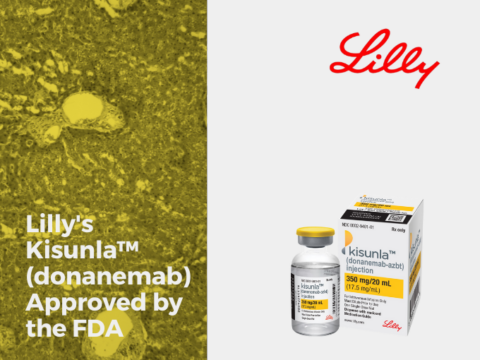
There are several ways to interpret Roche’s comments that gantenerumab didn’t lower plaques as much as expected. Expect more news after the CTAD Conference
Today, Roche and Genentech announced negative top-line results for their anti-amyloid antibody gantenerumab. In the two Phase 3 GRADUATE trials, the drug failed to slow cognitive decline on the CDR-SB. In addition, it removed less amyloid plaque than expected, according to a press release. More data will come on November 30 at the Clinical Trials on Alzheimer’s Disease conference in San Francisco.
Disappointed researchers noted the contrast with the positive Phase 3 results for lecanemab (Sep 2022 news). They expect the datasets to be discussed at CTAD will shed light on the differing effects of these two antibodies.
“It will be very important to compare the full results of the gantenerumab studies with those of lecanemab to understand the implications,” Paul Aisen at the University of Southern California, San Diego, wrote to Alzforum. “Based on the top-line gantenerumab results, it would seem that insufficient reduction of amyloid in brain, perhaps related to the subcutaneous treatment regimen, resulted in the disappointing clinical findings.”
Lon Schneider at USC, Los Angeles, noted that despite the statistically negative findings, gantenerumab slowed decline on the CDR-SB by 0.31 points in one of the two trials. “[This] is in the same range as the other anti-amyloid antibodies,” he noted. However, this numerical difference represented only an 8 percent slowing of decline, because the rate of decline in the GRADUATE trials was more than twice that seen in trials of aducanumab and lecanemab. “One wonders about exact eligibility criteria and study conduct … secondary and post hoc analyses should be interesting, to say the least,” he wrote (comment below).
To Stephen Salloway at Butler Hospital in Providence, Rhode Island, too, these analyses will be crucial to understanding what happened. “It will be important to determine whether those who became amyloid-negative on PET had a larger clinical response, and whether treating with a higher dose could be safely instituted to produce greater efficacy,” he wrote (comment below).
Of the four anti-amyloid antibodies that reached Phase 3, gantenerumab was the only one that had never demonstrated a cognitive benefit in a placebo-controlled trial. In earlier Phase 3 studies, the antibody was given at low doses that barely budged plaque and had no effect on cognition (Dec 2014 news). In open-label extensions of these trials, however, high-dose gantenerumab did mop up plaque, with hints that greater clearance correlated with better cognition (Dec 2017 news; Dec 2019 news; Aug 2022 news). Furthermore, the antibody moved biomarkers in the DIAN-TU secondary prevention trial, lowering p-tau181 and total tau and slowing the rise of the neurodegeneration marker NfL (Jun 2021 news).
Gantenerumab remains in an open-label extension of the DIAN-TU study, and had been selected for DIAN’s planned primary prevention trial. It is unclear how those plans will change. According to Endpoints News, Roche is pausing enrollment in the Skyline secondary prevention study investigating gantenerumab in amyloid-positive, cognitively normal people (Mar 2022 news).—Madolyn Bowman Rogers

 Print This Post
Print This Post





